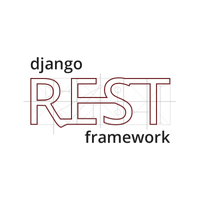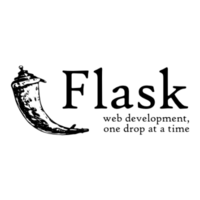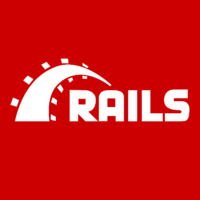Need advice about which tool to choose?Ask the StackShare community!
C# vs Flask: What are the differences?
- File structure and language: C# is a statically typed language with a strong emphasis on object-oriented programming, while Flask is a lightweight web framework for Python. C# applications typically run on the .NET framework, whereas Flask applications run on Python.
- Syntax and language features: C# is more verbose and has a stricter syntax compared to the more concise and flexible syntax of Flask. C# has features like generics, LINQ, and async/await, which are not available in Flask.
- Development environment: C# development often involves using IDEs like Visual Studio, while Flask development can be done in text editors like Sublime Text or IDEs like PyCharm. The setup and configurations for C# projects are usually more elaborate than for Flask projects.
- Community and support: C# has a larger community and extensive documentation available compared to Flask due to its association with the Microsoft ecosystem. Flask has a more niche audience, but benefits from the wider Python community.
- Scalability and performance: C# is known for its high performance and scalability, making it suitable for large enterprise applications. Flask, on the other hand, is more lightweight and may not be as efficient for handling complex, high-traffic applications.
- Hosting and deployment: C# applications are commonly hosted on Windows servers using IIS, while Flask applications can be deployed on a variety of platforms including Linux servers, making Flask more versatile in terms of hosting options.
In Summary, C# and Flask differ in file structure and language, syntax and language features, development environment, community and support, scalability and performance, as well as hosting and deployment options.
Hi all, I have been working on the development and automation of construction software using C# and Python. Recently I have started working on Django python web framework and basic frontend for web development. I am really confused to choose between C# and Python to move forward in my career. Seeking your advice on these technologies and their future market value from a career perspective. Thanks,
In my opinion, a modern developer should have deep knowledge about Object Oriented (OOP) and Functional Programming (FP). The programming language is something that must come later. Any good programmer should be able to switch from one programming language to another easily, if they follow OOP and FP. There are languages, though, that must absolutely be in the portfolio of a modern developer: Java, C#, Python and JavaScript. But be prepared to know also Scala, Kotlin, Swift, Go, Ruby, Rust and TypeScript.
C# and Python are both great languages. With great communities, libraries, frameworks, opportunities. I think it will be the same in a near future.
It’s matter of your likes, and your next jobs.
Dot net core is a little faster on performance. Python more popular with dynamic types. Probably the most lovable language.
It depends on your preferred career path, if you want to work in start-up/scale-up environments, you probably want to go with a language like Django for the rapid development (fast to production). On the other hand, C# or Java would be better for building long term and large scaled applications, although, Django could certainly achieve this as well. I also want to second that it won't hurt to know both languages, pick your technologies wisely according to the use case, don't stick to a single technology stack. :)
I need some advice to choose a language for back-end development. Right now, my REST APIs were created by using Flask/Django, and I'd like to create a more reliable and more efficient API with static typing. On the one hand, Go is young, very light, and syntax like Python's, but C# has a large number of libs and more built-in methods. Which is the best solution today?
It depends.
From times to times I asked or was asked that same question. Technology aside, it's important to consider the skills and expertise that the dev team has. Whether you use language A,B or C or framework X,Y and Z, if your team has a strong background and experience with something make it count too.
I would recommend Go simply because as you mentioned, it's super light. No need to bring in the whole .NET suite to get a simple REST API up and running. Even if your API is a bit complex, Go should be able to handle it.
I started out with C# and .NET and I loved it. In my opinion, it was the perfect way to start learning the fundamentals of software development however I always felt like I was at a disadvantage when I was doing .NET development. Granted, .NET Core is now open-source and cross-platform, but I moved to Node.js simply because it is incredibly popular. I never thought I'd learn to love JavaScript it the way I did with C#, but I learned to love it pretty quickly, especially once I started using TypeScript. You get all of the benefits of C# and JavaScript all in one. If you've built a REST API with Python/Flask/Django, you'll be able to learn Node.js/Express/TypeScript well enough to migrate your API very fast and it's incredibly easy to host for free on any number of services.
I'm new to Go, I've got very little experience but the 'feel' of Go, isn't like Python in my opinion. Go has a pretty steep learning curve, much steeper than C# in my opinion. So if you are willing to consider Node/Express/TypeScript, I think you may really like it. If you're picking between Go and C#, I'd go for C# as of today, but once I am more comfortable with Go (which I anticipate being a slow process) I may change my mind.
At this moment in time, in late 2020- Node/Express/TypeScript feels like the obvious choice to me as a former C# developer.
The best language for you is the one that you know best!
Its a bit of a guess, but from your question and the difficulties you have with Python it seems to me the problem you describe is the manifestation of a bad design/architecture/code quality. These are not the problems of a language itself!
The experience you gained over the past years with your current programming language will outmatch any benefits of another language that you start from zero.
Because in the end of the day languages aren't all that different when it comes to fullfil the same task, it's more the tools, framework and ecosystem for a particular problem that make a difference.
I worked with Java, C#, Go and recently in Phyton, and I would choose Phyton over Go for WebApps, even I like compiled languages more. Go is a very simple language, I would even say maybe too simple. I can't stand all those go boilerplate if err checks, the broken filesystem, the date/time mess and many more things that aren't actually relevant for business application at all. Go has its advantages but not for WebApps.
Keep the lang and improve your skills and architecture you will benifit more from it than from a new language.
I recommend Go for backend. It's younger than C# doesn't mean it's not mature. It's already mature enough to be run on production. You can see there are already many companies in the world adopting Go as their backend business logic or tooling. I can name a few like Github, Shopify, uber, twitch, and many more. It's easier learning curve, low entry barrier, better performance than C#, better memory consumption than C#, since there's no VM/runtime needed. It's suitable for large scale system and large codebase for readibility and long maintainability. It's simpler than C# since no class, inheritance(this can cause hard to maintain software), exception, etc. You can still implement OO way in Go without those feature. Simple file structure, only main files and package files. It compiles to single binary and easy to deploy and work around it, unlike C# who compiled to IL and you need to wrap all those IL files to be run inside separated web server(even .Net/.Net Core platform provide built-in web server). For libs, don't worry, there are many open source libs you will found on Github and already adopted by many companies. Go is employed in personal, startup, even corporate level.
I suggest Go because it has a simple and clean ecosystem. The language is simple. You don’t need complex configs or installs either. You’ll be up and running very quickly. It doesn’t have as much as .NET but its standard library is more than sufficient for RESTful APIs. Concurrency is much, much easier too.
C# I’d definitely recommend later on. The .NET framework, especially core, is extremely powerful and there’s little you can’t build with it. Go won’t take you long to be productive with.
The database your are going to connect and the needed libraries could decide. Because both are awesome languages.
If you want to stick with python you may want to consider Fastapi. It uses Pydantic to give you strongly typed models and validation. It generates openapi docs for you out of the box. They have good documentation as well and they claim it is really fast.
I have some systems on production using both languages. I tend to use golang if the API is small or medium size, but if I am going to build a large system definitively I use c#(asp netcore).
I would recommend C#, particularly Simplify.Web web-framework. C# is easy to start with (especially .NET Core). Simplify.Web is also easy to start with, no extra setup required for simple API, but on the other hand you have power of C# and full control over your API with ability to extend.
My journey to developing REST APIs started with Flask Restful, and I've found it to be enough for the needs of my project back then. Now that I've started investing more time on personal projects, I've yet to decide if I should move to use Django for writing REST APIs. I often see job posts looking for Python+Django developers, but it's usually for full-stack developers. I'm primarily interested in Data Engineering, so most of my web projects are back end.
Should I continue with what I know (Flask) or move on to Django?
If you want to be a Web developer with knowledge in another frontend and NoSql technology, maybe continue with Flask. However, if you want to create very fast solutions to grow up with a new business and merge these with data analysis and other tools, Django is the answer. Basically read more about the service architecture where you feel more comfortable, Microservice or Monolithic, but please will not married with any because they solve issues to different contexts.
I was considering focusing on learning RoR and looking for a work that uses those techs.
After some investigation, I decided to stay with C# .NET:
It is more requested on job positions (7 to 1 in my personal searches average).
It's been around for longer.
it has better documentation and community.
One of Ruby advantages (its amazing community gems, that allows to quickly build parts of your systems by merely putting together third party components) gets quite complicated to use and maintain in huge applications, where building and reusing your own components may become a better approach.
Rail's front end support is starting to waver.
C# .NET code is far easier to understand, debug and maintain. Although certainly not easier to learn from scratch.
Though Rails has an excellent programming speed, C# tends to get the upper hand in long term projects.
I would avise to stick to rails when building small projects, and switching to C# for more long term ones.
Opinions are welcome!
In 2015 as Xelex Digital was paving a new technology path, moving from ASP.NET web services and web applications, we knew that we wanted to move to a more modular decoupled base of applications centered around REST APIs.
To that end we spent several months studying API design patterns and decided to use our own adaptation of CRUD, specifically a SCRUD pattern that elevates query params to a more central role via the Search action.
Once we nailed down the API design pattern it was time to decide what language(s) our new APIs would be built upon. Our team has always been driven by the right tool for the job rather than what we know best. That said, in balancing practicality we chose to focus on 3 options that our team had deep experience with and knew the pros and cons of.
For us it came down to C#, JavaScript, and Ruby. At the time we owned our infrastructure, racks in cages, that were all loaded with Windows. We were also at a point that we were using that infrastructure to it's fullest and could not afford additional servers running Linux. That's a long way of saying we decided against Ruby as it doesn't play nice on Windows.
That left us with two options. We went a very unconventional route for deciding between the two. We built MVP APIs on both. The interfaces were identical and interchangeable. What we found was easily quantifiable differences.
We were able to iterate on our Node based APIs much more rapidly than we were our C# APIs. For us this was owed to the community coupled with the extremely dynamic nature of JS. There were tradeoffs we considered, latency was (acceptably) higher on requests to our Node APIs. No strong types to protect us from ourselves, but we've rarely found that to be an issue.
As such we decided to commit resources to our Node APIs and push it out as the core brain of our new system. We haven't looked back since. It has consistently met our needs, scaling with us, getting better with time as continually pour into and expand our capabilities.
Pros of C#
- Cool syntax351
- Great lambda support292
- Great generics support264
- Language integrated query (linq)210
- Extension methods180
- Automatic garbage collection94
- Properties with get/set methods89
- Backed by microsoft83
- Automatic memory management71
- Amaizing Crossplatform Support61
- High performance46
- LINQ42
- Beautiful37
- Great ecosystem of community packages with Nuget34
- Vibrant developer community26
- Great readability23
- Dead-simple asynchronous programming with async/await21
- Visual Studio - Great IDE19
- Open source17
- Productive16
- Object oriented programming paradigm15
- Strongly typed by default, dynamic typing when needed15
- Easy separation of config/application code12
- Great community11
- OOPS simplified with great syntax10
- Cool9
- Operator overloading9
- Events management using delegates8
- Good language to teach OO concepts8
- High-performance8
- Linq expressions7
- Unity7
- Coherent language backed by an extensive CLR6
- Conditional compilation6
- Top level code5
- Comprehensive platform libraries5
- Organized and clean5
- Concise syntax, productivity designed4
- Lovely3
- Statically typed2
- Interfaces1
- Far more sleek and sphisticated than other languages1
- Sophisticated overall1
- Interfaces0
Pros of Flask
- Flexibilty14
- For it flexibility10
- Flexibilty and easy to use9
- Flask8
- User friendly7
- Secured6
- Unopinionated5
- Orm3
- Secure2
- Beautiful code1
- Easy to get started1
- Easy to develop and maintain applications1
- Not JS1
- Easy to use1
- Documentation1
- Python1
- Minimal1
- Lightweight1
- Easy to setup and get it going1
- Perfect for small to large projects with superb docs.1
- Easy to integrate1
- Speed1
- Get started quickly1
- Customizable1
- Simple to use1
- Powerful1
- Rapid development1
- Open source0
- Well designed0
- Productive0
- Awesome0
- Expressive0
- Love it0
Sign up to add or upvote prosMake informed product decisions
Cons of C#
- Poor x-platform GUI support15
- Closed source8
- Fast and secure7
- Requires DllImportAttribute for getting stuff from unma7
Cons of Flask
- Not JS10
- Context7
- Not fast5
- Don't has many module as in spring1













































